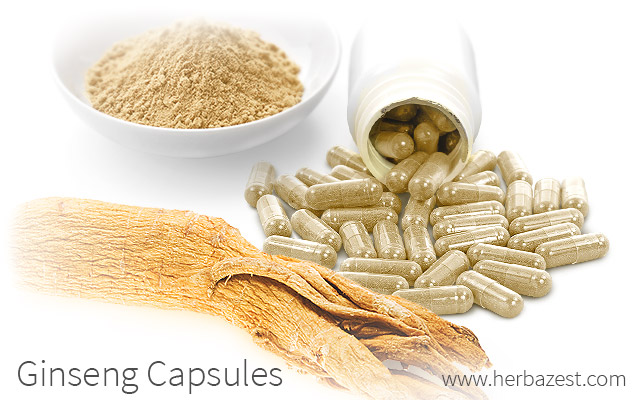Ginseng root is used worldwide to help relieve the symptoms of a number of medical conditions, including diabetes, hypertension, menopause symptoms, and erectile dysfunction. A variety of methods of consuming the Panax root have been developed, including ginseng capsules, which enclose the active ingredients in order to make ingesting them easier and allow for better dosage control.
The capsule was invented in the early 19th century as a way of disguising the terrible taste of most medicinal substances, and its creation is attributed to a French pharmacist called F.A.B. Mothes. Capsules shells are usually formed from gelatin; however, they may also be made of starch or other suitable substances. Their sizes range from No. 5 to No. 000, except for veterinary sizes. However, size No. 00 is generally the largest size acceptable to consumers and has a maximum capacity of 665 mg.
How to Make Ginseng Capsules
Capsules are a convenient way to reap the many ginseng benefits, and they can be made at home in a few simple steps. Gelatin or vegetarian capsule cases are available at specialty outlets. To make capsules of ginseng, you will need:
- Ginseng powder (the finer the powder, the better the quality)
- Size 00 capsules
Step-by-step process:
Pour the ginseng powder into a bowl and scoop up the powder by sliding the capsule halves toward one another. Alternatively, use a capsule-making tray.
When the halves of the capsule are filled with powder, slide them together without spilling the powder. Store in a cool place, preferable in dark, glass containers with a hermetic seal.
This preparation has a shelf life of three to four months, and the recommended dosage is two to three ginseng capsules a day. Gelatin capsules should preferably be administered with a warm drink, whereas vegetarian capsules (made out of methylcellulose) can be taken with cold or warm drinks.
Buying Ginseng Capsules
Ginseng capsules are readily available in specialized health stores, some retail stores, and online. When selecting a brand, it is important to consider that each one offer a particular ginseng dosage, as well as different levels of ginsenosides, which are believed to be responsible for ginseng's medicinal benefits.
The average price for a 100 capsule bottle of ginseng is around $20 USD, with a dosage of one to two capsules daily. Though all commercial ginseng supplements claim to contain a certain percentage of active constituents, buyers can expect to find a range of 5 - 10% ginsenoside content.
Benefits of Ginseng Capsules
Ginseng capsules are considered a convenient way to reap the benefits of the ginseng root without its bitter taste. The fixed dosage offered by the capsules is helpful for avoiding abuse syndrome, which can cause a number of ginseng side effects, including hypertension, nervousness, sleeplessness, skin rash, diarrhea, confusion, and depression.
Though ginseng tablets have a longer shelf life compared to capsules, which are not airtight, ginseng capsules may be safer for sensitive people, who may have allergic reactions to the wheat and lactose sometimes found among tablet excipients. With the correct dosage, ginseng capsules can help with stimulating immunity, increasing energy, improving mental performance, and preventing male sexual dysfunction.
Ginseng capsules include all the curative and preventative benefits of ginseng, are easy to find in stores or make at home, and are often much easier to swallow than other commercial forms of ginseng, which make them an ideal way of supplementation.
Sources
- MedlinePlus Herbs and Supplements, Ginseng, Panax
- Phytochemistry, Ginsenosides from American ginseng: Chemical and pharmacological diversity, 2011




